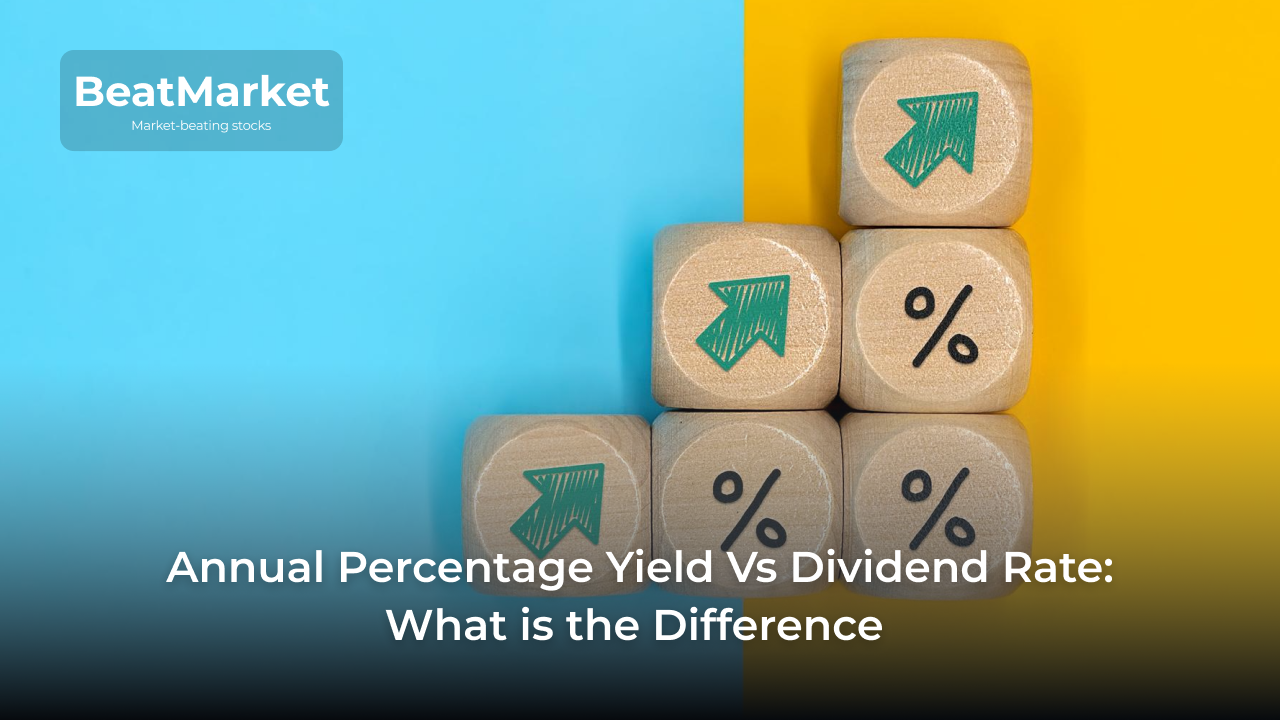Table of Contents
Introduction
- Investing in ChatGPT is a way to profit from new technologies and artificial intelligence.
- Investing in AI is possible through purchasing stocks on the stock exchange.
- You cannot directly buy ChatGPT stocks. Instead, you need to choose companies that implement AI.
In our guide, we will explain how to invest in artificial intelligence, provide names of ChatGPT stocks, and discuss their competitors.
What is ChatGPT?
ChatGPT is a brainchild of OpenAI. This AI can converse in 95 languages, utilizing real speech patterns. It achieves this feat through the use of a large language model (LLM).
Definition:
ChatGPT is an AI-based chatbot that evolves through machine learning algorithms. It is a general artificial intelligence, aimed at solving a wide range of tasks.
With each iteration, the neural network’s responses become more relevant.
Should Invest in OpenAI?
You cannot buy ChatGPT stocks on the stock market. Investing in AI technology can only be done indirectly. Some companies offer their own AI chatbots integrated into their products, while others earn profits in related fields.
Let’s provide examples of ChatGPT-related stocks. One key example is Microsoft, a partner of OpenAI that will benefit from the project’s development.
Other ways to invest in ChatGPT and AI include:
- Alphabet: the parent company of Google actively develops artificial intelligence technologies.
- Nvidia: a manufacturer of powerful graphics processors.
- Intel: another market leader in electronic devices.
- Perion Network: a small-cap company closely associated with the Bing search engine.
- C3.ai: a company specializing in corporate artificial intelligence.
All investments come with risks, especially when investing in young companies. Stocks of technological giants are considered safer. There are no guarantees that the listed issuers will maintain their leadership in the niche. As a result of the AI revolution, other companies may emerge to the forefront.
How to Buy ChatGPT Stock? Step-By-Step Process
Public trading of ChatGPT is not available. To profit from artificial intelligence, you need to take the following steps:
- Select companies that are major investors in AI.
- Choose a broker and open a brokerage account.
- Fund your newly created brokerage account.
- Buy shares.
- Manage your investments.
ChatGPT stocks are volatile. To avoid the risk of losing your entire deposit, opt for trading without leverage.
Step 1: Research the OpenAI and ChatGPT market (5 alternatives)
Investing directly in ChatGPT is not possible since its developer, OpenAI, is not a publicly traded company. Its stocks are not available on stock exchanges.
You need to select publicly traded companies that will benefit from the development of AI technologies. For example, businesses involved in software development are a good option. Another alternative is companies that offer powerful computers, as AI cannot exist without them.
When choosing ChatGPT stocks, it’s essential to consider several factors. Firstly, examine the company’s financial performance. Secondly, assess its strengths compared to competitors. It’s important to determine whether the issuer has the potential to lead in the niche.
You should also evaluate the prospects for the development of artificial intelligence and ChatGPT. For instance, there is a forecast by Reuters that OpenAI will earn $1 billion in 2024.
Many AI stocks belong to small-cap companies. They can show growth of 100% or more per year, but such investments are high-risk. Examples of companies that surged on news of AI implementation include SoundHound AI and BigBear.ai Holdings. However, speculative stocks are not suitable for a long-term strategy.
To invest in AI with lower risks, consider these 5 AI companies:
- Microsoft.
- C3.ai Inc.
- Alphabet.
- NVIDIA.
- Upstart.
1. Microsoft – Strategic Partnership with OpenAI
Microsoft stocks represent a groundbreaking investment opportunity, especially in the context of ChatGPT. In 2023, Microsoft announced its plan to invest a staggering $10 billion in OpenAI, establishing itself as the largest investor in the venture. This investment positions Microsoft to gain access to all new GPT models developed by OpenAI.
Microsoft leverages OpenAI’s advancements in its product ecosystem, integrating ChatGPT capabilities into services such as Azure and Copilot. However, the primary focus lies in the development of the Bing AI chatbot.
The company anticipates that these revolutionary investments in the search system will bolster its market position, potentially challenging Google’s dominance. Microsoft’s leadership views this as a strategic move to gain competitive advantage.
Despite the emphasis on ChatGPT, it represents just one facet of Microsoft’s diverse business portfolio. While the performance of artificial intelligence technologies plays a significant role in shaping stock performance, Microsoft’s diversified business model offers resilience and stability to investors.
2. C3ai.inc
C3.ai Inc. is a company suited for individuals with a high risk tolerance, especially considering its Initial Public Offering (IPO), which emerged as one of the largest in the artificial intelligence sector. The stock prices nearly doubled shortly after the IPO compared to the initial pricing.
The company specializes in offering corporate solutions based on generative ai technology. Among its products is C3 AI Inventory Optimization, a tool designed for optimizing raw material and finished product inventories. Another example is C3 AI Customer Churn Management, an application for tracking consumer satisfaction.
Despite being unprofitable thus far, C3.ai Inc. is transitioning its user interaction model from subscription-based to usage-based payment, indicating a shift in its strategy to improve financial performance.
3. Alphabet
Alphabet, the parent company of Google, stands as a direct competitor to ChatGPT, actively developing artificial general intelligence. The company introduced Bard AI , utilizing the Pathways language model capable of generating text, images, and even code.
Bard retrieves responses from the network, processes them, and delivers them to the user, thereby integrating into Google Search. While this AI model falls short of ChatGPT, Alphabet continues to refine Bard to maintain its market leadership in search engine technologies. Investing in Alphabet stocks signifies a bet on intensifying competition in the chatbot arena.
Similar to Microsoft, Alphabet boasts a diversified business model, with generative artificial intelligence being just one of its many ventures.
4. NVIDIA
NVIDIA’s chips are indispensable across numerous industries, from supercomputers to gaming, and AI applications are no exception. The company’s graphics processors are utilized in training ChatGPT. UBS estimates that around 10,000 units were involved, while other sources suggest numbers up to 30,000.
Additionally, NVIDIA has partnered with Microsoft to create a powerful cloud computer operating on AI. This endeavor will require tens of thousands of GPUs for its operation.
In terms of AI applications for commercial use, NVIDIA collaborates with Dell Technologies, allowing the company to benefit from the advancement of neural networks.
5. Upstart
Upstart’s performance has not been satisfactory for investors, with its stock value plummeting more than tenfold since October 2021. Despite this, the issuer leads the market in AI-driven lending and is exploring additional avenues.
The company has ventured into collaboration with the automotive industry. Upstart Auto Retail is advanced software enabling a seamless purchase experience for customers. Brands like Honda and Lexus utilize it for their digital retail operations.
Step 2: Set Up a Brokerage Account
For investing in ChatGPT stocks, a reliable broker is essential. When selecting a trading intermediary, investors consider the following factors:
- Reputation: The company must have licenses, which may be issued by regulatory bodies such as the Financial Conduct Authority (FCA) or the Financial Industry Regulatory Authority (FINRA).
- Cost of services: It’s preferable to choose a broker with lower fees, but attention should be paid to whether this is offset by additional fees.
- Available markets: Many companies allow trading in various investment products besides stocks, including ETFs, mutual funds, options, and more.
- Quality of service: Brokers often provide clients with educational materials and technical assistance in setting up trading platforms. Customer support may be available through chat, phone, or email.
Usually, online brokers offer more favorable commissions, but they may lack certain ancillary services.
Step 3: Fund Your Account
Upon completion of the registration process, the next step is to transfer funds into your brokerage account. This typically involves selecting a suitable payment method, such as linking your bank account or using alternative options like PayPal.
Step 4: Place a Trade
To buy shares, follow these steps:
- Open the trading platform and search for the desired stock using its ticker symbol.
- Choose the order type. It can be a market order, executed immediately at the best available price, or a limit order with a specified price.
- Specify the desired quantity of shares.
- Click the “Buy” button.
Investing typically involves holding onto stocks even during periods of decline. However, you can create a stop order if desired, which will sell the stock if its price falls to a certain level.
Step 5: Monitor and Manage Your Investment
The registration process, selecting a payment method, transferring funds, and purchasing stocks are just the initial steps in investing. Investors also need to monitor the performance indicators of selected companies. Additionally, staying informed about the development of the AI industry and monitoring forecasts of its future prospects is crucial.
These actions will enable investors to make informed decisions regarding their investments. For example, they may consider increasing or decreasing positions in AI sector stocks based on market trends and performance indicators.
Bottom Line
The growth of ChatGPT makes this sector attractive for earning potential. However, direct investment in OpenAI is not feasible for retail investors as it is a private company. The most obvious alternative is purchasing Microsoft stocks, as it is a partner of OpenAI and stands to benefit directly from the success of GPTChat. Another option is investing in competitors who work with their own AI platforms, like ChatGPT.
For investors interested in buying ChatGPT stocks, they can utilize exchange-traded funds (ETFs) such as Global X Robotics & Artificial Intelligence ETF or iShares Robotics and Artificial Intelligence ETF. This allows access to a variety of AI stocks simultaneously.
It’s essential to remember the risks associated with any investment decision. Stocks in the technology sector are highly volatile and do not guarantee stable price growth.
FAQ
Can you buy stock in ChatGPT?
Brokers currently do not provide trading terminals embedded with AI. However, exposure to ChatGPT is possible through investing in companies like Microsoft or those involved in the artificial intelligence sector.
Is ChatGPT publicly traded?
Investing directly in ChatGPT is not possible as OpenAI stocks are not traded on the stock exchange. To buy ChatGPT stocks, one must select a publicly traded company that will benefit from its development. Please note that ChatGPT is not publicly traded.
What is Chat GPT Stock Price currently?
OpenAI is a private company, so it does not have a market value. Thrive Capital has estimated the business at $80 billion. Previously, figures of $29 billion or less were mentioned. This development was facilitated by significant investments from Microsoft.
Who owns ChatGPT?
ChatGPT is a development of OpenAI, a company owned by OpenAI, a company engaged in research in the field of artificial intelligence. It was founded in 2015 as a nonprofit organization but transitioned to commercial activity in 2019.







